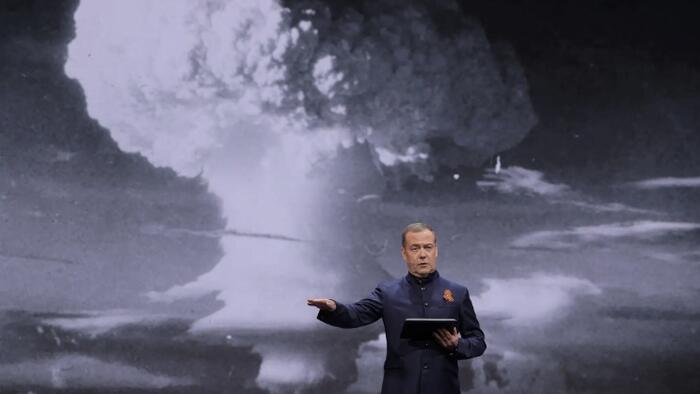The international stage recently witnessed an intense verbal exchange between former President Donald Trump and Russia’s outspoken figure, Dmitry Medvedev, marking a notable escalation in high-profile political rhetoric. This unusual public back-and-forth between influential global personalities underscores a new dynamic in diplomatic discourse, where direct challenges and sharp warnings are increasingly voiced through public platforms.
The friction intensified following Medvedev’s pointed comments concerning an international settlement proposal, where he asserted his nation’s distinct position, warning that each new ultimatum risked broader global tensions. His statements suggested a perilous trajectory, extending beyond specific regional disputes to involve other major powers.
This initial salvo drew a sharp rebuke from Senator Lindsey Graham, prompting Medvedev to retort with characteristic sarcasm, further fanning the flames of the diplomatic sparring. The exchange highlighted a rapid-fire sequence of provocations and counter-provocations, illustrating the volatile nature of contemporary international dialogue.
Responding to Medvedev’s pronouncements, former President Trump issued a blunt midnight declaration on Truth Social, labeling Medvedev a “failed former President” and advising him to “watch his words.” This direct public admonition from a former head of state signifies the depth of the personal antagonism now permeating global political communication.
Medvedev swiftly counterpunched, referring to apocalyptic imagery and alluding to a significant strategic response system, emphasizing the perceived nervousness his words elicited from high-ranking foreign officials. He underscored his nation’s resolve to continue its chosen path, viewing the strong reaction as validation.
Beyond the direct verbal confrontation, Trump also introduced economic dimensions into his public statements, specifically addressing trade relations with India and the imposition of new tariffs. He expressed indifference to certain international economic alignments, asserting a preference for minimal business engagement with particular nations, reflecting a broader economic philosophy.
Dmitry Medvedev, who previously held significant governmental roles, has evolved into a prominent public and social media voice, advocating forcefully for his nation’s actions and often adopting a confrontational stance towards Western perspectives. His current role as a vocal proponent of his country’s policies, frequently adopting a “bad cop” persona, adds another layer to the complex interactions on the global stage.






Leave a Reply